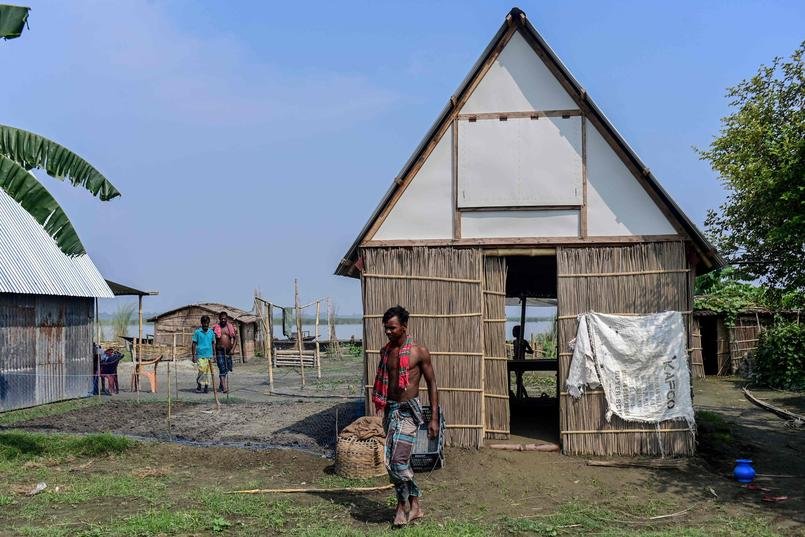This year, when the Brahmaputra River in Bangladesh burst its banks during the monsoon, Abu Sayeed did not have to run for the first time in his life. He simply waited for the flood to recede from the first floor of his home. “Khudi Bari saved us», explains this 40-year-old farmer who, like millions of Bangladeshis, lives in the vast fertile plains of the country. “Khudi Bari?” These are “tiny houses” made of bamboo and sheet metal to help residents face the risk of flooding. It was a Bangladeshi architect who had the idea to build these unique structures.
Winner of the Aga Khan Award for Architecture, which honors works adapted to the needs of the Muslim world, he designed the house “at the lowest possible cost for those in need ”, with locally available materials, he explains. A structure that rests on bamboo poles,”can be assembled and disassembled very easily“, he continues. Its construction cost? This is valued at approximately $450 (€400), including labor costs. “It is a mobile modular system and therefore can be moved from one place to another», continues the architecture, evoking a project that “prepare for climate change“.
Easily moveable
Partly inspired by the traditional wooden houses of Munshiganj (a district in central Bangladesh), built on stilts to resist flooding, she plans to build more than a hundred Khudi Bari across the country. The first level is made of sheet metal that can be removed to allow the stream to pass during floods, explains Mohammad Kalu, 35, who lives in one of the structures. “If the water rises to chest or cheek level, you can still stay in the house. You can go up to the first floor and cook on gas or wood fire“, explains.
Mohammad Jashim, who sells wooden kits in Munshiganj, says Bangladeshis are increasingly turning to this type of prototype. “We sell these houses all over the Czech Republic. They are environmentally friendly, easy to move and flood resistant“, he sums up. “Leaving home during floods is a part of our lives. And often, when the flood receded, we returned to find all our belongings stolen.explains Abu Sayeed. I hope we never have to leave our homes again“.
Bangladesh is one of the countries most at risk in the world from meteorological disasters caused by climate change and rising sea levels. An intensifying rainy season and accelerated melting of Himalayan glaciers is eroding the levels of the Ganges and Brahmaputra, two sacred rivers that form a vital delta for the country in Bangladesh, scientists have warned. Massive floods in the Sylhet region (northeast) in 2022 affected seven million people and killed around a hundred more.

